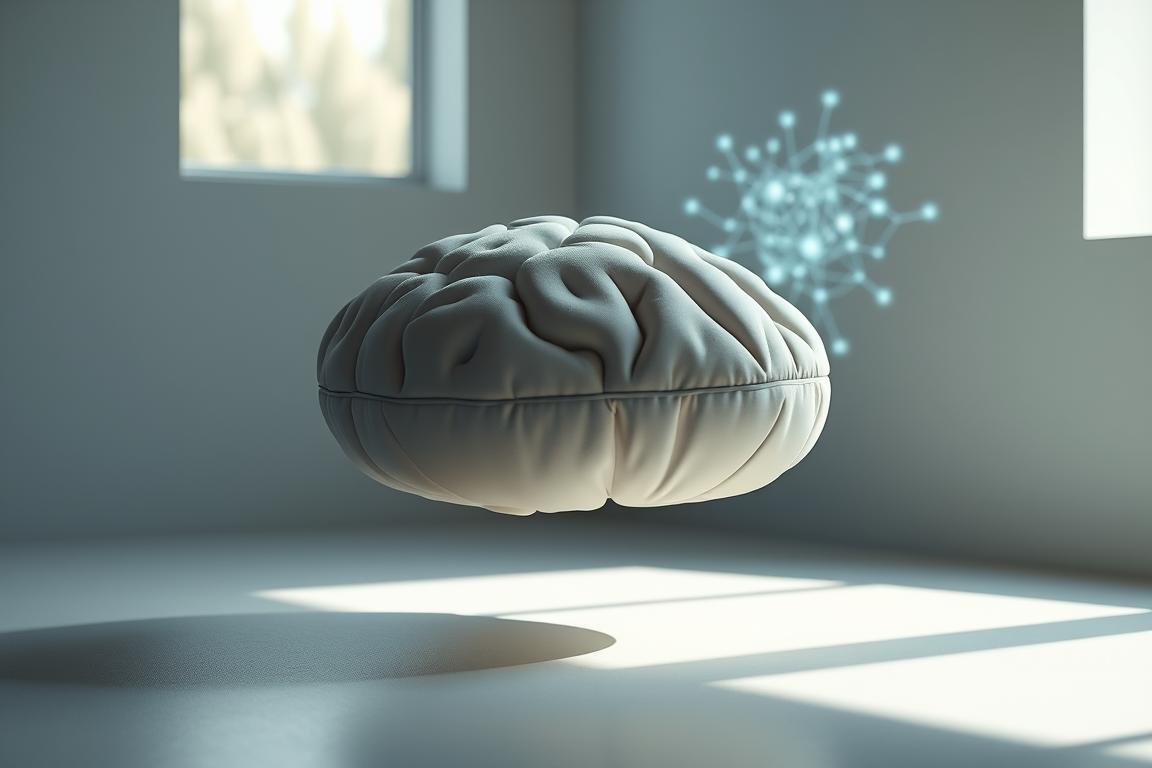Meditation and the brain: neuroscientific insights
For thousands of years, you may have been practicing meditation for your spiritual, emotional and physical well-being without knowing how it affects your brain. Neuroscientists have found that meditation affects activity in brain regions related to anxiety, depression and pain tolerance.
Research shows that regular meditation positively changes your brain structure and function. By practicing meditation, you can achieve serenity, better concentration and emotional balance.
Important findings
- Neuroscience researches how meditation influences the interactions between your brain and your well-being.
- Regular meditation has been proven to positively change your brain structure and function.
- Meditation not only offers spiritual benefits, but also scientifically proven changes in your brain.
- The practice of meditation can lead to more serenity, better concentration and emotional balance.
- The most important regions of the brain that are influenced by meditation can be used for your well-being.
The science behind meditation
Research into meditation has made enormous progress in recent years, particularly through the use of modern imaging techniques. These advances have enabled meditation to develop from a purely spiritual practice into a recognized field of research in modern neuroscience.
From spiritual practice to neuroscientific research
Meditation is a generic term for numerous methods of training the mind, which for a long time were assigned to the field of religion, spirituality and esotericism. Since the first study using functional magnetic resonance imaging in 2000, research into meditation has developed rapidly. The Mind and Life Institute plays an important role in this development by promoting a dialog between representatives of religious traditions and scientists.
Pioneers of meditation research: Richard Davidson, Sara Lazar and Britta Hölzel
You will get to know the pioneers of meditation research: Richard Davidson, who works with the Dalai Lama and researches the neural basis of meditation; Sara Lazar, who has conducted groundbreaking studies on structural changes in the brain; and Britta Hölzel, whose research investigates the effects of meditation on stress and anxiety.
Through the work of these neuroscientists and psychologists, such as Dr. Richard Davidson, meditation has been scientifically legitimized and recognized as an evidence-based method to promote mental health.
How meditation changes the brain
The practice of meditation can lead to significant changes in your brain, especially in regions responsible for attention and emotion regulation. Through meditation, you can harness your brain’s natural capacity for neuroplasticity to bring about positive change.
Neuroplasticity: the malleability of your brain
Neuroplasticity refers to the brain’s ability to change and adapt in response to experiences and environmental factors. Meditation uses this ability to promote positive changes in your brain that last well beyond the meditation session.
Changes in the gray matter
Scientific studies have shown that regular meditation can cause measurable changes in the gray matter of your brain, especially in the hippocampus. This region is responsible for memory and emotional regulation and can be damaged by chronic stress.
Strengthening neuronal connections
Meditation not only strengthens the structure of your brain, but also the connections between different regions of the brain. This leads to improved communication and integration, which in turn leads to less stress, better concentration and emotional balance.
- You will understand what neuroplasticity means and how meditation utilizes this ability of your brain.
- Scientific studies have shown that just eight weeks of regular meditation can bring about measurable changes in your brain.
- You will learn how meditation increases the density of gray matter in important regions of the brain, especially in the hippocampus.
Meditation and the brain: brain regions affected
Through meditation you can strengthen your brain regions and improve your well-being. Meditation positively influences various areas of your brain and leads to changes that promote your emotional and cognitive health.
The hippocampus: memory and emotion processing
The hippocampus is an important brain region that is responsible for learning and processing emotions. Regular meditation can increase the gray matter in the hippocampus, which improves your learning ability and emotional processing. This makes you more resilient to stress and improves your ability to deal with emotional challenges.
The amygdala: stress reduction and anxiety management
The amygdala acts as your brain’s ‘alarm bell’ and plays a key role in stress. Meditation can help to calm the amygdala and reduce excessive stress reactions. This leads to less anxiety and a more balanced emotional response to challenges. The decrease in the density of gray matter in the amygdala is also associated with a decrease in subjective stress levels.
The prefrontal cortex: attention and self-regulation
The prefrontal cortex is responsible for your attention and self-regulation. Meditation strengthens this area, which helps you to concentrate better, control impulses and make more conscious decisions. Improved function of the prefrontal cortex contributes to better integration of your thoughts, feelings and actions.
Effects on your emotions and stress management
Through regular meditation, you can better regulate your emotions and reduce stress. Meditation has a positive effect on your emotional balance by helping you to reduce stress hormones and develop a more relaxed attitude towards your feelings.

How meditation reduces stress hormones
Meditation has been proven to lower your stress hormone levels, which has positive effects on your physical and mental health. Dr. Ulrich Ott explains that meditation helps to break unfavorable thought cycles and prevent rumination, which is particularly important in the prevention of depression.
- Meditation reduces stress hormones and improves stress resilience.
- Regular practice helps to perceive emotions with more composure.
Emotional balance through regular practice
With regular meditation practice, you can learn to better regulate your emotions. As Dr. Ott points out, emotions can arise during meditation, but through calm awareness they lose their energetic basis. This helps you to deal with your feelings more calmly and achieve emotional balance in everyday life.
The changes in your brain through meditation are directly related to your improved ability to regulate emotions and reduce stress, which leads to greater inner peace and well-being.
Meditation as training for your attention
When you meditate, you activate certain regions of the brain that are responsible for focusing and maintaining your attention. According to Dr. Ulrich Ott, this trains the central executive network in your brain, which is responsible for directing and maintaining attention.
This training helps you to improve your ability to concentrate and be less distracted. An important aspect of this is recognizing when your thoughts wander and gently returning your attention to the chosen object, such as your breath.
Improve focused attention
Regularly practicing meditation strengthens your ability to focus your attention. By focusing your attention on a specific object, you also improve your ability to concentrate in everyday life.
Breaking through thought spirals
Meditation also helps you to break destructive thought spirals. By strengthening the anterior cingulate cortex, you can better control your thoughts and gain more mental clarity and emotional stability.
Cultivating compassion and positive emotions
The practice of meditation allows you to expand your emotional abilities and develop compassion for yourself and others. Through certain forms of meditation, you can actively work on cultivating emotional attitudes that not only benefit you, but also others.
Neuroscientific findings on compassion meditation
Research, particularly on Buddhist monks, has shown that meditation strengthens the brain in areas associated with empathy and compassion. The insular cortex plays an important role here. Studies have shown that the brains of these monks react more strongly to stimuli that trigger compassion.
How you can develop more compassion through meditation
You can learn to cultivate compassion and positive emotional attitudes through certain meditation techniques. These techniques help you to expand your ability to be open to others and develop genuine compassion. Regular practice can help you to better empathize with others and build a stronger connection to the world around you.
Health benefits of meditation
Through regular meditation, you can not only improve your mental health, but also strengthen your physical health. Meditation has a proven effect on various aspects of your health.
Meditation has positive effects on your immune system. Studies have shown that people who meditate regularly produce a higher number of antibodies and are more resistant to infections.
Effects on the immune system
A study in which both meditators and non-meditators were infected with a flu virus showed that the meditators produced a greater number of antibodies and had increased immune function.
Pain reduction through mindfulness
Mindfulness meditation can alleviate chronic pain by helping you to change your relationship to pain and reduce resistance to unpleasant sensations. Much of the suffering comes from resistance to pain.
Meditation for mental illness
For people with mental illnesses such as depression or anxiety disorders, meditation offers scientifically recognized support which, in conjunction with conventional therapies, can significantly reduce the relapse rate.
Overall, meditation can have profound positive effects on your health by strengthening both your physical and mental health.
Practical forms of meditation for beginners
If you are new to the world of meditation, there are some practical forms that can help you get started. Meditation is a practice that can support people in various life situations, and there are several methods that are particularly suitable for beginners.
Mindfulness meditation (MBSR) for everyday life
Dr. Ulrich Ott recommends that beginners attend an MBSR (Mindfulness-Based Stress Reduction) course. These courses, also known as “stress management through mindfulness”, provide a structured introduction to meditation and gentle yoga exercises. Such a course typically lasts eight weeks, with one meeting per week, and includes audio instructions for daily practice at home.
Simple exercises for your daily practice
You can also start with simple exercises such as breath observation, the body scan or mindful walking. Just 10-15 minutes of daily meditation can have positive effects on your brain and well-being. You can also integrate meditation into your everyday life by incorporating short moments of mindfulness while waiting, walking or even brushing your teeth.
Conclusion: Meditation as a way to a healthier brain
Meditation is more than just a spiritual practice; it is a scientifically proven tool to boost your brain health. Through regular meditation, you can improve your ability to concentrate, reduce stress and strengthen your emotional balance.
Research by psychologists and neuroscientists such as Britta Hölzel, Sara Lazar and Richard Davidson clearly shows that meditation causes positive changes in the gray matter of your brain and the strengthening of important neural connections. Meditation helps you to improve your attention, regulate your emotions and strengthen your resistance to stress.
Start a simple meditation practice today and experience for yourself how your brain, your emotions and your entire life can change for the better. Science is behind you and supports the many ways meditation can benefit your wellbeing.




